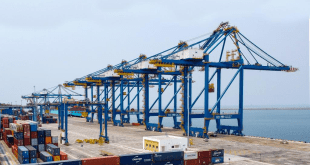Business in Cameroon | Cameroon counts almost 900,000 cryptocurrency users, representing 6.76% of its active population. The figure is contained in a study on the development of cryptocurrency and Ponzi schemes in the country, presented in Yaoundé, last August 24. This makes Cameroon the 11th African country with the most cryptocurrency users, Nigeria being the first with 22.33 million users.
In Cameroon, the number of cryptocurrency users has risen sharply since the Covid-19 crisis because cryptocurrency transactions are carried out online, explains Eric Pokem, deputy director of foreign exchange and transfers at the Ministry of Finance’s (Minfi) Directorate of Financial and Monetary Cooperation (DCFM).
The study period was not specified. Nevertheless, it is presented at a time when several companies supposedly operating in cryptocurrency (decentralized peer-to-peer digital currency issued without the need for a central bank) have gone bankrupt after ripping off their customers. The bankrupt companies include Mida, Mekit Invest, Chymal, and Liyeplimal. These companies are accused of setting up a Ponzi scheme – a fraudulent financial arrangement whereby subscribers are remunerated not by the profits of their investments, but by the fees paid by new subscribers.
In the framework of the study, 18 companies offering “cryptocurrency services” were surveyed as well as 1,872 economic agents investing in the field. It emerged that their activities broadly concern investment advice on the financial markets, buying and selling crypto online, and the management of crypto portfolios. Only Global Investment Trading (GIT), owner of Liyeplimal (with around 90,000 members in 2021), was investing in cryptocurrencies.
Recommendations
According to the study, crypto investors are usually average or low-income earners, with only 4.9% of the population having a monthly income in excess of CFAF500,000. The average cryptocurrency investment by a customer is $1,600, or around CFAF800,000, while the average compensation expense for a customer is $300 (around CFAF150,000) weekly. The survey also reveals that users pay very little attention to the legal framework governing these activities, and just over 57% believe they are aware of the risks involved (scams, theft, bankruptcy, etc.).
The new regulation governing the BVMAC (the regional financial market in the CEMAC region), introduced ratings for “digital assets” and “digital tokens”. This regulatory framework, drawn up by the Central African Financial Market Supervisory Commission (Cosumaf), became effective on August 1, 2022, but it is not specific enough. The study therefore suggests Cosumaf should specify what digital tokens and assets mean and speed up the fianalization of the Digital Service Providers (DSPs) status in consultation with other Cemac regulators.
The study also suggests the urgent identification and closure of crypto companies that indulge in Ponzi schemes to ensure proper regulation of the crypto industry in the CEMAC region. It also recommends the creation of a multi-stakeholder platform (Minfi, Beac, Cosumaf, Antic, Minpostel) to monitor cryptocurrency activities and to study the possibility of introducing a central bank digital currency in the Cemac zone.
 CameroonOnline.org Cameroon news, Actualité Camerounaise, live Web TV & Radio, World News and a lot more
CameroonOnline.org Cameroon news, Actualité Camerounaise, live Web TV & Radio, World News and a lot more



